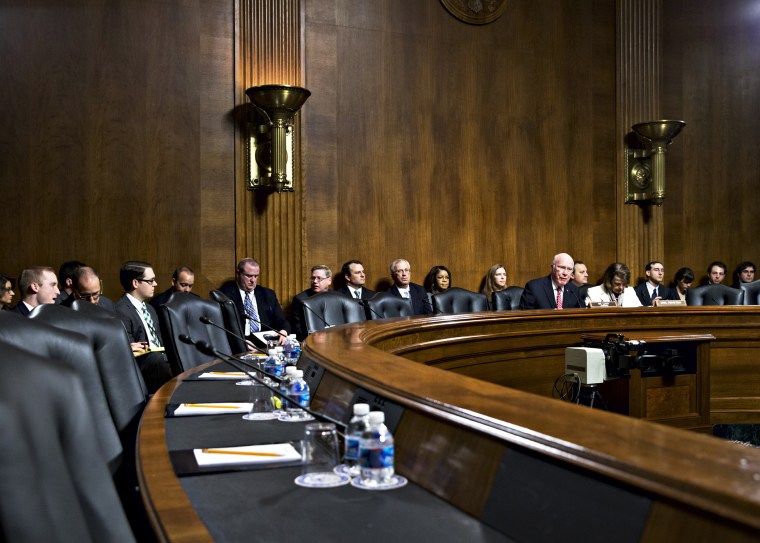Rules in the Senate were forever changed this week. Senate Majority Leader Harry Reid and fellow Democrats on Thursday approved a measure to block the minority's power to filibuster certain presidential nominees.
"This is a great challenge to America's democracy as we know it," host Joe Scarborough said on Friday's Morning Joe. "For progressives that have said that this president doesn't play hardball, that he's not a bare-knuckle-brawler, that he's not afraid to get down in the mud and be dirty and fight dirty and fight hard ... I think you can take that complaint about your president off the table."
The deployment of the so-called "nuclear option" puts an end to repeated attempts by the GOP to prevent President Obama from staffing his administration or appointing judges to the federal bench. But it doesn't apply to Supreme Court nominations or legislation passing through the Senate.
The "nuclear option" is the most significant change to the rules in the upper chamber since 1975. The rules change could lead to a "slippery slope" and "open Pandora's Box," the Morning Joe panel agreed.
"I think what happened in the Senate yesterday was both unfortunate and unavoidable,” said Al Hunt, columnist for the Bloomberg View. The filibuster was previously used in history on issues such as civil rights, but it has been misused as of late, he added.
Democrats have argued for changing the filibuster rules for years. They were against a similar measure when the GOP had the majority in the Senate, but have voted to end the filibuster 79 times during Obama's presidency.
But President Obama backed the nuclear option and said he hopes it will ease gridlock in Washington.
"Today's pattern of obstruction is not what the founders wanted," he said on Thursday.
Obama's nominees have been subject to filibusters more times than former presidents, including George W. Bush, Bill Clinton, George H. W. Bush, and Ronald Reagan.
"I think the landscape has changed," Michael Steele, former chair of the Republican National Committee, said on the show. "The hypocrisy is typical Washington. The reality now has changed for the future.”
Watch more on Morning Joe:
